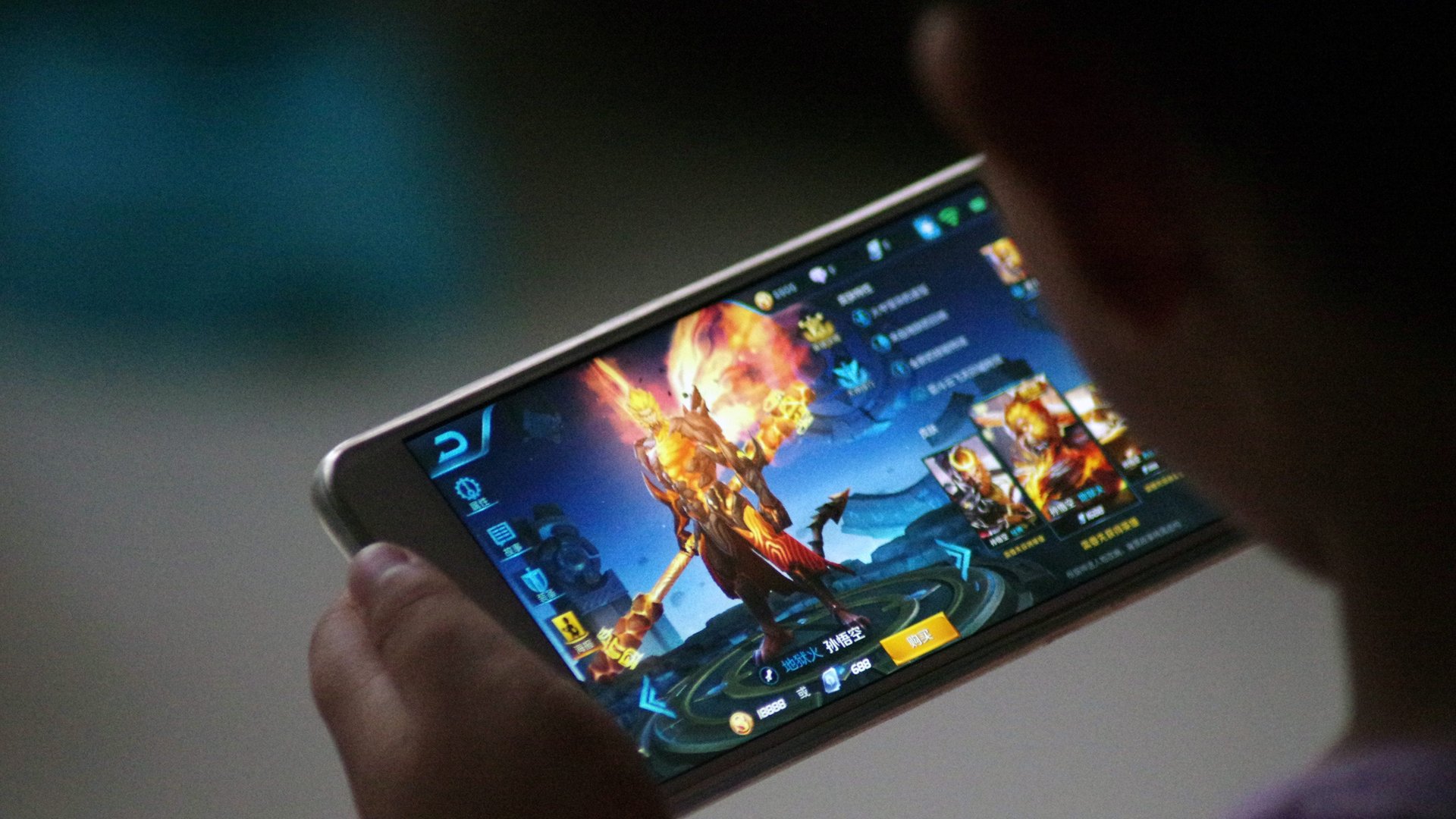Tencent’s child locks for its crazily popular mobile game are fueling a black market in “adult” accounts
Since its launch in 2015, Honor of Kings, developed by internet giant Tencent, has grown into a viral hit in China. It’s a multiplayer online battle game similar to League of Legends, but for mobile phones, and with characters adapted from Chinese history and myths. It has become the world’s top-grossing (paywall) mobile game, with some 50 million active daily users.


Since its launch in 2015, Honor of Kings, developed by internet giant Tencent, has grown into a viral hit in China. It’s a multiplayer online battle game similar to League of Legends, but for mobile phones, and with characters adapted from Chinese history and myths. It has become the world’s top-grossing (paywall) mobile game, with some 50 million active daily users.
But it has become a bit too successful, drawing public criticism for fueling gaming addiction among minors.
On July 4, Tencent rolled out a series of measures to restrict play time for the game’s young users. Real-name registration is now required for all players. Those under age 12 are limited to one hour daily play time, and are banned from logging into the game after 9pm. Those aged between 12 and 18 are limited to two hours of game time each day.
“There are no clear regulations to guard against mobile gaming addiction in China, but we have decided to take the lead to try to dispel parents’ concerns by limiting play time and force children to log off ,” Tencent said in a statement (link in Chinese) over the past weekend.
But the child locks have immediately fueled a black market for “adult” accounts. According to a report from the Beijing News (link in Chinese), Honor of Kings accounts registered with adult IDs are now being sold on Chinese gaming sites for prices ranging from several dozen yuan to several thousand yuan, depending on the player characters’ virtual equipment. Hacking services that enable minor players to bypass the time limit have also sprung up. The newspaper’s reporter paid 20 yuan (less than $3) for such a service, and two hours later, he was able to play a teenager account without any restrictions.
China’s top state newspaper, the People’s Daily, has weighed in against the mobile game. Calling it a “poison,” the paper said in a July 3 commentary (link in Chinese) that the game “has been constantly releasing negative energy” to the society, citing recent reports of a 13-year-old jumping off a building after his father stopped him from playing the game. (It later emerged that the young player, who broke his legs and is in the hospital, thought he could fly like a game character, his father told Chinese media.)
“Is the game entertaining the public, or ‘ruining’ people’s lives?” the article wrote, urging Chinese game developers to take more social responsibility. In a second commentary (link in Chinese) published July 4, the People’s Daily stressed that greater controls over addictive games like Honor of Kings must be implemented “without delay.”
Amid the play-time limit and the criticism, Tencent’s Hong Kong-listed shares plunged 4% on July 4, wiping out some $14 billion (paywall) from its market value. Its share price continued to fall in the first hour of the trading session on July 5, but recovered the lost ground by the end of the day.
Earlier this year, Tencent launched an online platform that enables parents to place electronic locks on their children’s gaming accounts. In response to the workarounds for the account limits, Tencent said it will upgrade the platform to allow parents to ban their children from playing on the devices which have been registered under the parent-control system. When implemented, the measure will perhaps fuel another black market for budget smartphones.